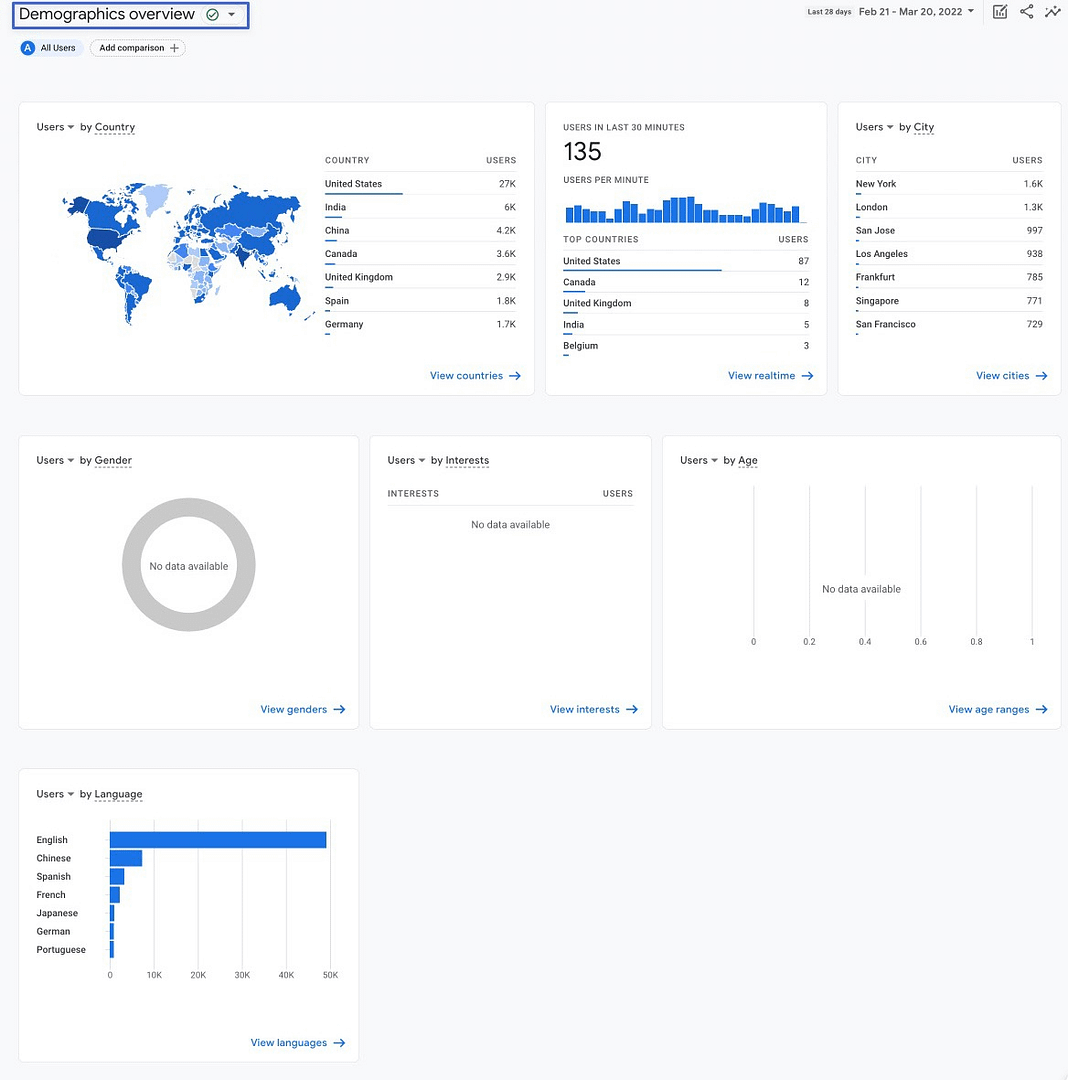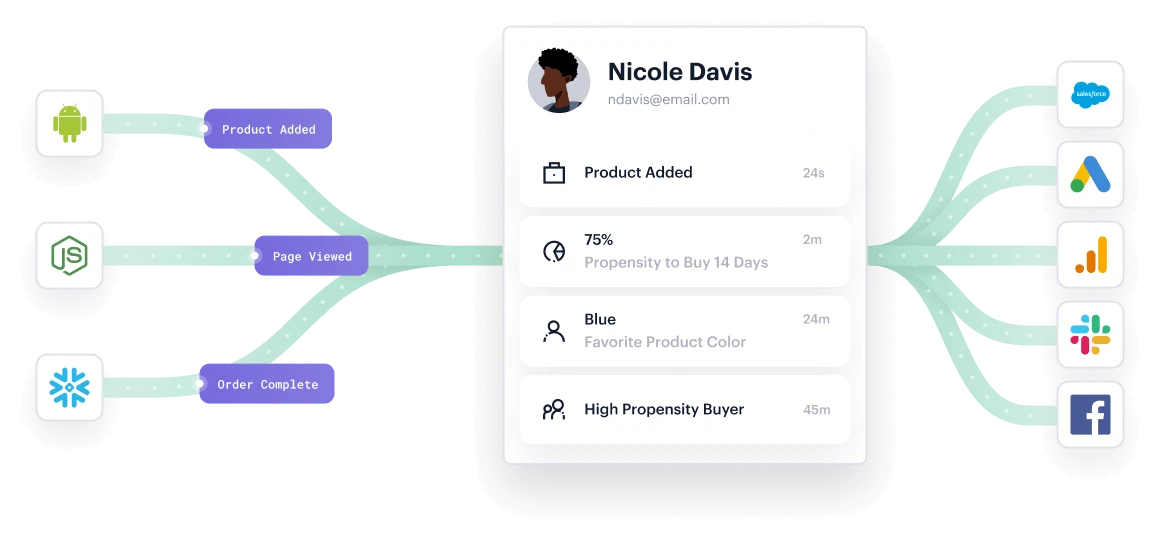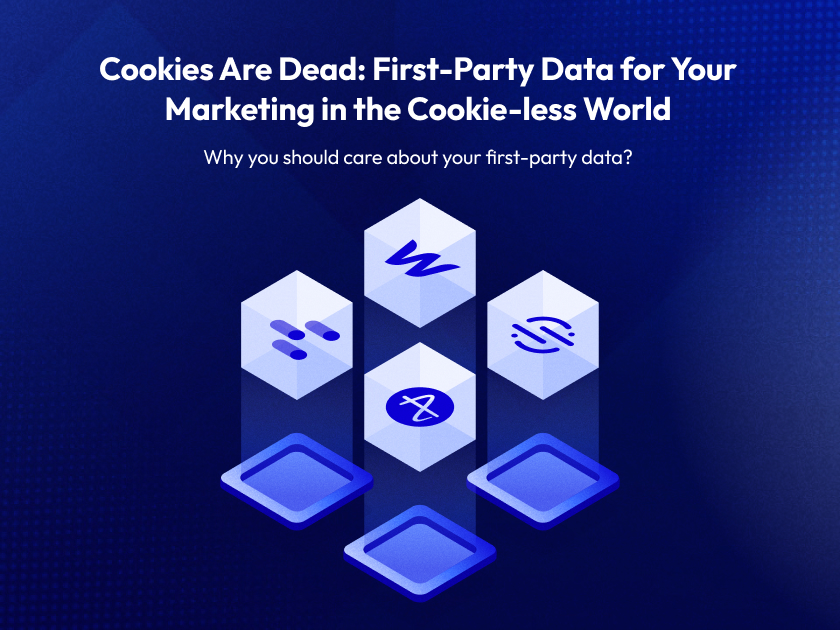Cookies are Dead; well, sort of.
Despite of almost four years of socialisation, Google has been trying to phase out third-party cookies on Chrome. Moreover, they are also dealing with respective regulators to make online advertising as ‘privacy-friendly’ as possible.
This shift highlights the reliance on first-party data, which offers a more reasonable and privacy-friendly approach to understanding customer behaviour.
Companies need to adapt by strengthening their data collection strategies to ensure they continue to deliver personalised experiences without the use of third-party cookies.
In this article, we’re going to have a deep dive on what are cookies, what’s the difference between first and third-party cookies, and how it will affect your marketing day-to-day.
It’s not really “Cookie-less”. So what are Cookies?
However, in reality, Cookies are still around.
We’re still using it on a daily basis, and each Cookie still play a fundamental role on our daily operations.
So what are Cookies? And how does it impact our online activities?

According to the Mozilla Development Network Documentation, A Cookie (or browser cookie or web cookie) is:
“a small piece of data a server sends to a user's web browser. The browser may store cookies, create new cookies, modify existing ones, and send them back to the same server with later requests. Cookies enable web applications to store limited amounts of data and remember state information”
It’s a mouthful, but here’s the TL:DR version; a Cookie:
- Is a relatively small piece of data
- Could be created, updated, deleted by the browser.
- Could be sent to a server by the browser.
- Is remembered and stored within a period of time.
Common use cases of Cookies
.jpeg)
In a case of cookies, the most common usage are:
- It remembers your credentials within a website; so you don’t have to re-login every time you visit.
- It remembers your items inside your shopping cart.
- It remembers your preferred site settings
- It remembers you and use the credentials for re-marketing purposes.
First-party Cookies vs Third-party Cookies; Significant Difference
Even though every Cookie might look the same, where the cookies are sent and how it is processed will make a huge difference on how you would track everyone which comes to your website.
For the sake of simplicity, here’s a table of comparison on how both are very different:
To make it even simpler, I present you both use-cases about first-party and third-party data below.
A third-party data use case: Google Analytics 4
Have you ever wondered how Google knows what are the gender of the person coming to your website, which age range the person is, or which country the person comes from?

This is because Google re-uses the identification (in this case, cookies) gathered from other website to make an educated guess who the person is and where the person comes from.
Even though the person comes to your website completely anonymous/without submitting any personal information, Google knows who your visitors are based on their gathered information from the entire world-wide-web.
This approach, however, is not without any problems.
Because Google is guessing your visitors identity, your data will never 100% correct.
Third-party data has a huge flaw
Imagine the case of John, who made a purchase on a website (which is not made of yours) through Google Ads in 2017 while residing in Switzerland.
Google's third-party data recorded John's location as Switzerland.
Fast forward to 2024, John relocates to Singapore. However, because Google's data hasn't been updated since 2017, it still incorrectly identifies John as residing in Switzerland.
This inaccuracy can lead to misleading marketing strategies and ineffective decisions; because the data no longer reflects John's current situation.
Do take note that this example is an oversimplification. But the point stays the same, you cannot rely 100% from third-party data, especially for your marketing purposes.
A first-party data use-case: Segment CDP (Customer Data Platform)
In Devhaus, we use Segment as our Customer Data Platform to track the movements of our digital platform visitors.

The way Segment works is by collecting data directly from our website and applications through a piece of code we've implemented. This data can include page views, button clicks, form submissions, and even purchases.
Unlike Google Analytics, Segment doesn't try to guess who the user is.
Instead, it relies on unique identifiers we assign to each visitor (folks at Segment call it “Anonymous ID”). This allows us to track individual user journeys across our platforms and gain a deeper understanding of their behaviour without relying on third-party cookies.
For example, we can see that a specific user, identified by an Anonymous ID, visited our blog post on "First-Party Data," downloaded a related blueprints, and then signed up for our newsletter. This granular level of detail allows us to personalise their experience better, such as sending them targeted emails and ads based on their liking.
Conclusion
The phasing out of third-party cookies marks a significant shift in the digital marketing landscape. While it presents challenges, it also offers an opportunity to prioritise a more sustainable andprivacy-focused approach to data collection.
By focusing on first-party data, businesses can build direct relationships with their customers, gain a deeper understanding of their needs, and deliver more personalised experiences. This not only improves marketing effectiveness but also fosters trust and loyalty.
Investing in a robust first-party data strategy is no longer optional; it's essential for thriving in the cookie-less future. Tools like Segment CDP can help you collect, organize, and activate your first-party data, enabling you to personalise your marketing efforts and build stronger customer relationships.
Having a hard time implementing your CDP for your marketing purposes? Reach us out at our Enquiry form and we will get back to you!

Up to 50% Subsidisies on your next implementation strategy with us
For Companies registered and operating in Singapore, with up at least 30% local shareholding - leverage on the Enterprise Development (EDG) grants for your next; Strategy, Implementation or Enablement project with us at Devhaus!
Supporting Asia’s teams - from all shapes and size












Frequently Asked Questions
Here are some pointers, and a little - 'Quick bite-sized information'.
A: The choice depends on your current stage and specific needs:Alpha ($15K) - If you need to validate a new idea, conduct market research, or develop a go-to-market strategy before building anything
Beta ($25K+) - If you're ready to build an MVP, new website, or CMS with user-focused design and basic analytics
Gamma ($50K+) - If you have an existing system that needs growth acceleration, marketing automation, or enhanced analytics
Delta ($200K+) - If you're undertaking comprehensive digital transformation with legacy system modernization
Epsilon ($30K+) - If you have existing systems (preferably built by us) that need performance optimization and technical debt reductionNot sure? Book a free 30-minute consultation with Rohan (rohan@admiralsystems.io) to discuss your specific situation and get a tailored recommendation.
Our pricing is completely transparent with fixed-scope packages:
What's Included:
- Dedicated team of 3-5 specialists per engagement
- All deliverables listed in the engagement model
- Comprehensive enablement documentation
- Project management and regular progress reports
- Up to the maximum man-hours specified (200-1,200 hours depending on engagement)
No Hidden Costs Policy:As long as your project stays within the agreed scope and timeline, there are no additional charges
- All potential add-ons are clearly listed upfront with fixed pricing
- For Singapore companies: EDG grants can cover 50-70% of costs (we handle the entire grant process)
When Additional Costs Apply:
- Scope changes beyond the original engagement (requires new engagement purchase)
- Client-caused delays that exceed allocated man-hours
- Optional add-ons you specifically request
Each engagement has a defined maximum timeline:
- Alpha: 2-8 weeks (200 hours)
- Beta: 8-12 weeks (280-500 hours)
- Gamma: 16-20 weeks (700 hours)
- Delta: 26-52 weeks (1,200 hours)
- Epsilon: 6-10 weeks (300 hours)
- Project Delays: We build buffer time into our estimates to account for normal client feedback cycles
( If delays are caused by our team, we absorb the additional costsIf delays are client-caused and exceed our allocated man-hours, additional charges may apply at our standard hourly ratesWe provide weekly progress reports so you always know where we stand)
- Acceleration Options: Rush delivery available with 50% surcharge for urgent needs
We can often compress timelines by adding additional team members! If you have your own development team, we're more than happy to take it up to hi-fi prototyping so it'll be a ton less work for your Dev team!
We can only guide you through it - having said that, we're experienced grant partners and handle the entire process:
Grant Coverage:
- Singapore SMEs: Up to 50% of project costs covered
- Sustainability projects: Up to 70% coverage (until March 2026)
- Our services align with multiple EDG categories: Business Strategy Development, Financial Management, Human Capital Development, and Strategic Brand & Marketing Development
Our Grant Process:
Partner Network: We work with Real Inbound Consulting (certified TR 43/SS 680) for grant administration
Full Service: Application preparation, document submission, project management, audit support, and claims processing
Administration Fees: $7,800-$15,000 depending on project size (much less than the grant savings)
Success Rate: High approval rate based on our experience with 50+ grant applications
Eligibility Requirements:
- Singapore-registered company30%+ local equity held by citizens/PRs
- Financially stable to complete the project
- Project hasn't commenced before application
Timeline: Grant approval typically takes 4-6 weeks before project commencement.
We offer multiple post-engagement options:
Immediate Post-Completion:
- 30-day warranty period for any bugs or issues
- Complete handover documentation and training
- Knowledge transfer to your internal team
Ongoing Support Plans:
Starting from
Basic ($5K/year): 40 hours, bi-annual check-ins, basic troubleshooting
Advanced ($10K/year): 80 hours, quarterly check-ins, strategy sessions
Premium ($20K/year): 120 hours, monthly check-ins, dedicated account manager
Growth & Evolution:New Requirements: Purchase additional engagement models for new projects
System Expansion: Beta → Gamma → Delta progression path available
Continuous Optimization: Epsilon engagements for ongoing performance improvements
Key Principle: Support covers maintenance and optimization of existing systems, but new features or integrations require new engagement models to ensure proper scoping and quality.
Key differentiators set us apart:
1. Asian Market Expertise:
- First Webflow Enterprise partner in Asia
- Deep understanding of Singapore, Hong Kong, and Indonesian markets
- Multi-language, multi-currency, cross-border commerce experience
2. Comprehensive MarTech Integration:
- Partners with 15+ best-in-class platforms (Segment, Customer.io, Fullstory, etc.)
- End-to-end data pipeline orchestration (not just point solutions)
- Unified dashboard approach preventing "tool sprawl"
3. Award-Winning Creative + Technical Team:
- 2024 Fullstory Service Partner Award winner (APAC)
- Design team that creates "jaw-dropping creatives" alongside technical implementation for your analytics
- Creative-technical convergence in every project


